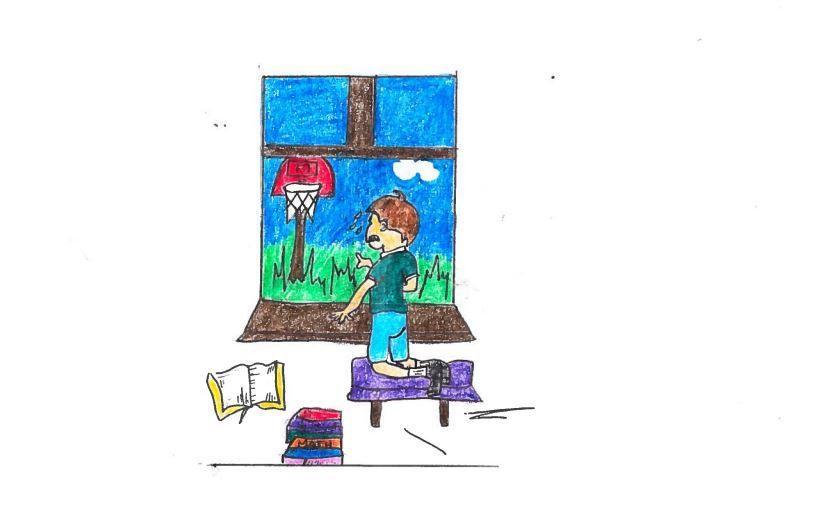A 2015 study by the University of Oviedo found larger amounts of homework are linked to lower test scores among students. Research also shows little to no correlation between homework and elevated academic performance and discipline. Time outdoors, spending time with family or pursuing other interests should be what elementary school children expect after a seven-hour day at school, not exhaustive amounts of homework.
Children should be given the time and opportunity to explore their interests beyond school. Though elementary-age students learn a great deal through traditional schooling, many valuable lessons are gleaned from recreation time and free play. They are often unable to pursue their own “instructions” because the instructions of others have already been forced upon them. Children shouldn’t be expected to develop skills like decision-making, creativity and independence if nearly every moment of their time is already shackled by homework.
Some argue giving children hours of daily homework teaches responsibility and maturity. However, this magnitude of responsibility is counterproductive and should be replaced with more reasonable, age-appropriate and practical responsibilities. A first-grader should be eating dinner with their family and playing fetch with the dog, not worrying about how they will possibly finish all of their assignments in time for bed. Many adults would find it difficult to endure an eight-hour work day followed by an evening full of additional work. This schedule is taxing on professional adults and should certainly not be implemented on elementary-age children.
The correlation between higher amounts of homework for elementary school children and elevated academic performance have been widely proven false. A 2006 study by Duke University found homework is actually of little benefit to student’s test scores until they reach high school-age. If improving academic performance is the goal, what elementary students really need is more recreation time and, according to the National Sleep Foundation, more sleep.
A possible solution and method endorsed by the National Education Association and the National Parent Teacher Association is the “10-minute rule,” according to Time Magazine. This standard suggests the amount of homework given each night should increase by 10-minutes for each grade level. For example, a first-grader would have 10 minutes of work each evening, a second-grader would have 20 minutes, and so on. This method provides a reasonable amount of homework while still providing ample time for children to explore other interests and hobbies. Despite this guideline being widely-endorsed by parents and teachers alike, many elementary students are still inundated with hours worth of homework.
Elementary school students should be able to express more than just their academic side as they journey through adolescence. Too much homework can make children despise school as a whole and can lead to burnout before the academic difficulties of middle school and high school take effect. Rather than improving academic performance, the most common side effects of excessive homework are a bad attitude, an exhausted over-worked child and an exacerbated parent. The elementary education system must reevaluate the amount of homework given and consider the effects it has on young children.
Hannah Kleinpeter is a 20-year-old mass communication junior from Baton Rouge, Louisiana.





